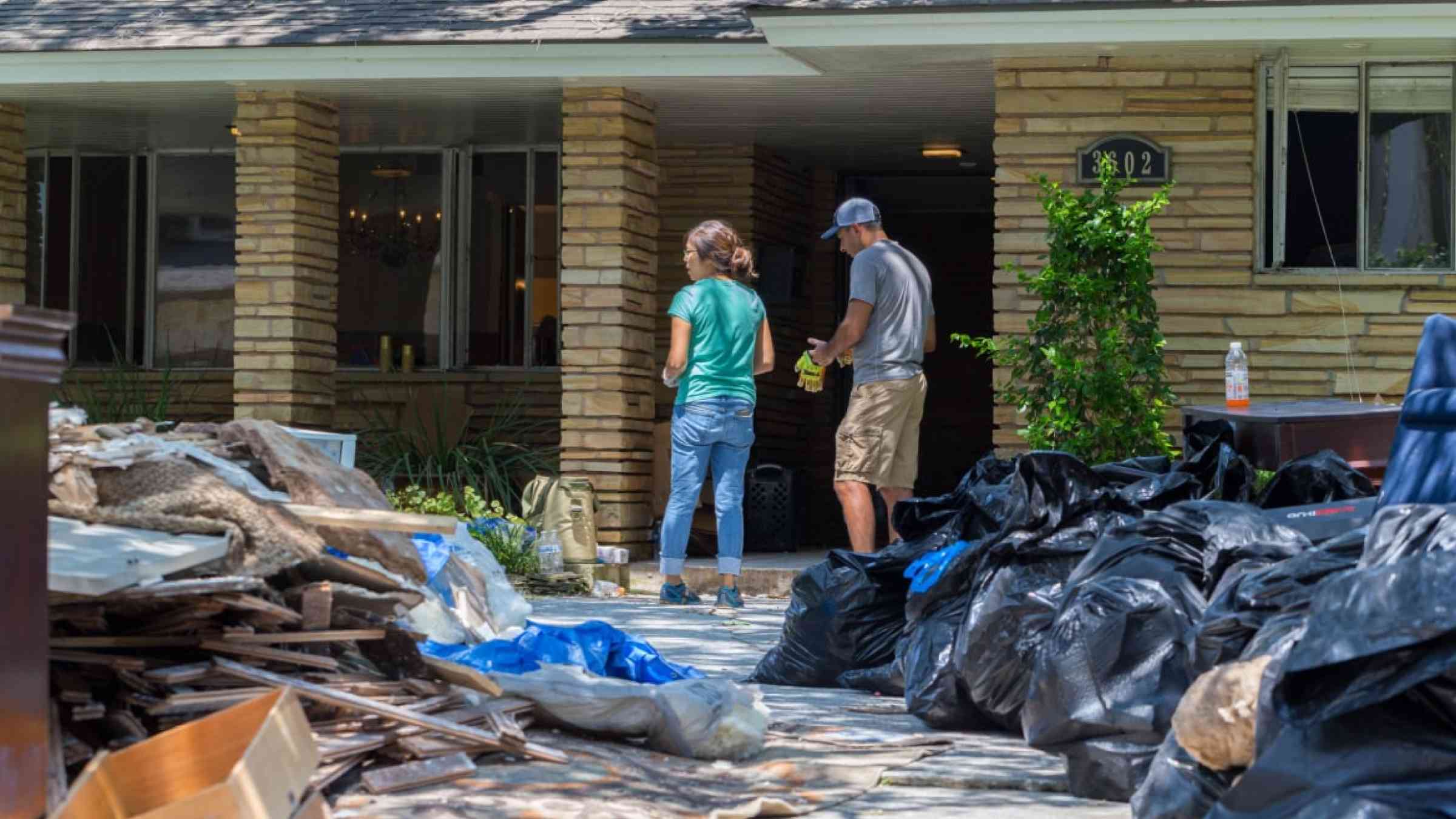Building better buyouts through lived and learned experience

Community members, researchers, practitioners, and advocates have long experienced challenges with federally funded home buyout programs.
At the same time, demand for relocation support is growing in many areas. Home buyouts are the country's primary tool to help people move out of harm's way, but current programs don't meet communities' needs-and they are also insufficient to address the scale of the problem. We need better buyouts, ones that work for residents and local governments alike.
A home buyout may sound simple on paper: A family facing repeat flooding or other hazard volunteers to sell their home to a public body like the local town or county; the family uses the proceeds to move somewhere safer; and the land where they used to live is preserved as open space to absorb flood waters or provide other public benefits. In reality, buyouts are highly complicated and typically take years to complete. The compensation is often insufficient to meet a household's needs, the experience is full of stress and uncertainty, and the process and outcomes can both exacerbate existing inequalities and create new problems.
Historically, it's been difficult to turn the lessons of past buyouts into innovations for the future. Many buyouts are conducted as discrete one-time projects that-hopefully-communities don't have to repeat, meaning lessons are forgotten. Meanwhile, when the sales are complete, the homeowner participants have often left the community and taken their hard-fought expertise with them. This leaves communities to reinvent the wheel with each new buyout project, often in stressful post-disaster circumstances.
Beginning in 2021, NRDC joined forces with partners at the Climigration Network, The Nature Conservancy, CH Consulting, and the Federal Emergency Management Agency (FEMA), to address this challenge. We believe that, to build a better buyout, we need to draw from both the lived experience of community members and the professional experience of practitioners. Our ongoing goal is to develop practical recommendations for better buyouts and identify the policy shifts needed to put them into action, while cultivating networks of people who can support each other and their communities through the buyout process.
Integrating lessons from community and practice
Between December 2021 and October 2022, we convened conversations with buyout practitioners and program managers, and with buyout participants and residents of communities affected by buyouts. Our participants spanned 14 states, from coastal to inland locations across the contiguous United States. Workshops with community members were carefully designed to acknowledge trauma and avoid re-traumatizing participants. We worked with skilled facilitators, focused on story sharing and building relationships, enabled everyone to participate in their preferred language, provided compensation for participation, and made sure participants were able to pause or leave the discussions at any time, for any reason. Visit https://www.climigration.org/innovations-in-buyouts to learn more about our process.
We summarized the outcomes of these workshops in a pair of white papers. Both community members and practitioners identified many of the same challenges and recommended many of the same solutions, but from complementary perspectives. Our top recommendation can be summarized as: Buyouts can't just be individual projects. They need institutional support, at the appropriate scale.
Instead of thinking of buyouts as discrete hazard mitigation projects, we need a structure that allows a community to plan ahead, complete as much work as it can before a disaster hits, and be ready to plug in sources of funding when and where they meet the community's specific needs. This institutional capacity might sit at the local government, county, watershed, or state level, but it must be informed by both local community members and the experiences of other programs from across the country. In particular, our community participants recommended tangible ways to incorporate lived experience into government programs. For example, consistent and compassionate case management is often pointed to as something improves buyout recipients' experiences. What if that support was provided by someone who had actually gone through the process themselves?
Sharing and applying what we've learned
Since the conclusion of our workshops, we've taken the recommendations on the road to share what we've learned. We presented at the 2023 Columbia University Managed Retreat Conference and FEMA's 2024 Hazard Mitigation Partners Workshop; briefed staff and partners of the White House Council on Environmental Quality; and shared lessons and stories alongside buyout program managers and buyout participants on an episode of the America Adapts podcast. More recently, we reconvened these partners-along with new connections we've made over the course of this project-to provide input to New York State's Division of Housing and Community Renewal as it plans a new state-funded home buyout program.
In May, members of our project team attended the National Adaptation Forum to connect with colleagues from around the country. We heard from community advocates, policy experts, academics, government staff, public health professionals, Indigenous leaders, and others who are thinking about the intersecting challenges of adapting to climate change. Our conversations reinforced the importance of continuing to broaden our networks, hear each other's stories, and find points of connection.
Later this year, we plan to launch the next phase of our project with additional dialogues for both community members and practitioners and concrete opportunities to inform programs and policy. If you'd like to join our growing community of practice or hear about upcoming opportunities for conversation and collaboration, fill out this brief form and we'll be in touch!
